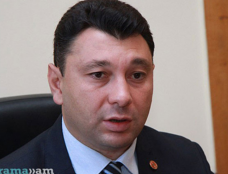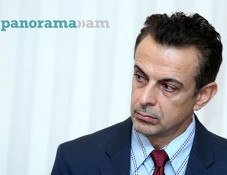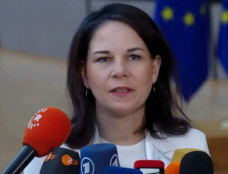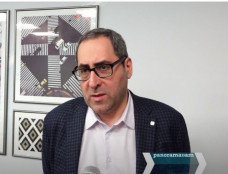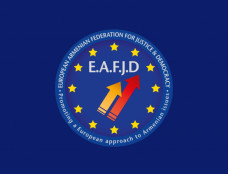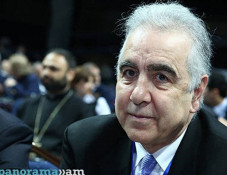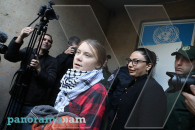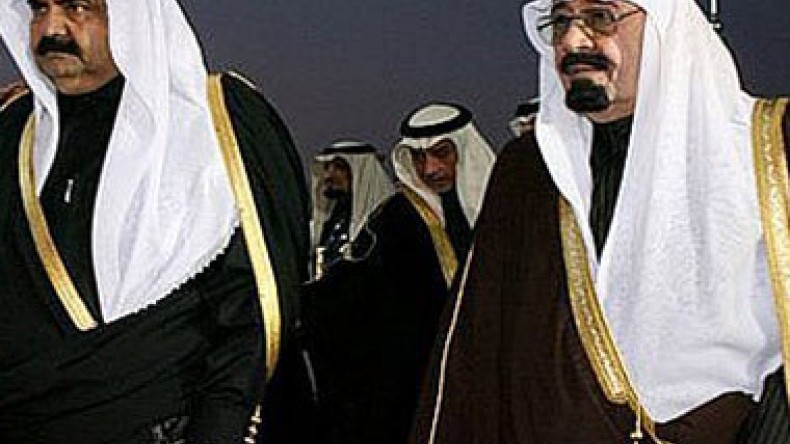
Qatar will succumb to Saudi Arabia
Below is Iranian Diplomacy’s interview with Mohammad Shariati Dehaghan, Iran’s former ambassador and representative to the OIC.
- Saudi Arabia, the UAE, and Bahrain have called back their ambassadors from Doha. It is said that this measure has been taken due to the differences between these three countries and Qatar over Doha’s relations with the Muslim Brotherhood and that this indicates the depth of the rift between the member countries of the Persian Gulf Cooperation Council. What is the root of the disclosure of these differences?
- These differences had existed before. The issues which have been proposed are related to the UAE’s opposition to the Muslim Brotherhood and Saudi Arabia’s protests against Qatar’s lack of support of the government of Bahrain in its media and its approach towards the developments in Egypt. All of these issues are not desirable for Saudi Arabia. Meanwhile, Saudi Arabia is sensitive with regard to the Egyptian opposition, but those who fled Egypt like Sheikh Gharzawi are now in Qatar and issue statements from there and write articles. This is difficult for Saudi Arabia to accept. Saudi Arabia and the UAE believed that, with the change in the Qatari Emir, there would be a change in the policies of this country but this did not happen. Of course, Qatar later issued a statement and said that these differences are not related to the member countries of the Persian Gulf Cooperation Council and go beyond these issues.
- Will the pressures exerted by Saudi Arabia ultimately lead to a change in Qatar’s policies or the cooperation of other members of the Persian Gulf Cooperation Council?
- It seems that Saudi Arabia has more weight and it will exert more pressures on Qatar. Past experiences show that Qatar has succumbed in some cases. Meanwhile Saudi Arabia expects Kuwait to move on the same path but Kuwait and Oman did not cooperate. The reason is that the Islamic Countries Summit will be held in Kuwait, thus, this country prefers to pursue a moderate policy with regard to the member countries. From the beginning, Oman has objected to the unity of the Persian Gulf Cooperation Council countries and the establishment of a united currency. Therefore, the policies of these two countries are independent from those of Kuwait and Oman. Nevertheless, it seems that Qatar will move itself closer to Saudi Arabia in the future and reduce its cooperation with the Egyptian refugees. But since Hamas’ main headquarters are in Qatar, this country will increase its support of this organization.
- In one part of this statement, it has been said that Qatar is not committed to the agreement reached between the member countries of the Persian Gulf Cooperation Council with regard to non-interference in each other’s internal affairs. But we see that Saudi Arabia openly and directly interferes in Bahrain.
- In 2013, through Kuwait’s mediation, an agreement was signed between the Persian Gulf countries to safeguard their interests and consider the interests of the member countries in their propaganda. Saudi Arabia claims that Qatar has ignored this agreement. The issue of Saudi Arabia’s interference in Bahrain is another issue, with which member countries have military and defense contracts with each other within the framework of the agreement in the Persian Gulf Cooperation Council.
- Right now the Persian Gulf Cooperation Council is divided into a group of countries like Saudi Arabia, the UAE and Bahrain on one sided, and Oman, Kuwait and Qatar on the other. Will such differences lead to the bipolarization of this council?
- These differences had existed before but were never discussed openly. There were even differences between Saudi Arabia, the UAE and Qatar since some time ago. There are still border conflicts between Saudi Arabia and the UAE and the UAE has pursued its own policies separately from those of Saudi Arabia. When Saudi Arabia cut its relations with Iran following the killing of a number of Hajj pilgrims, Qatar had little relations with Iran and was even the mediator to establish relations. It is the same about Oman. Kuwait also pursues a relatively independent policy from those of the Persian Gulf countries because of its parliament. Therefore, there is this possibility that Kuwait would mediate to prevent the intensification of tensions and Qatar would succumb. For many years, Saudi Arabia did not give permission for the presence of Al-Jazeera reporters in the Hajj ceremonies but after the agreement which was made and the change of policy of Al-Jazeera and Qatari media, this country balanced its positions.
- Iran and Egypt have been mentioned as the most important issues of difference between these three countries and Qatar. But the UAE expressed its support for the trend of nuclear negotiations after the Geneva Agreement and the foreign ministers of both countries even met with each other. Is the main issue of difference the rift in the strategies of the member countries of the Persian Gulf Cooperation Council with regard to Iran or are there other issues involved in this matter?
- Right now what Saudi Arabia blames Qatar for is the meeting between Qatari officials and the officials of the Lebanese Hezbollah. The reason is that the Persian Gulf Cooperation Council has put sanctions on Hezbollah for its support of the Bahraini opposition. With regard to the Geneva Agreement, Saudi Arabia has never expressed its dissatisfaction. Of course, the media of this country stated their dissatisfaction but no negative official statement was expressed by the rulers of Saudi Arabia. These countries have viewed the Geneva Agreement with doubt and are worried about an agreement which might have been reached between Iran and the US over the regional issues and not only the nuclear issues.
- What has Qatar’s position been regarding this statement? Will Doha retaliate?
- Qatar has stated that it will not return its ambassadors from these countries and this could be interpreted as Doha succumbing to Saudi Arabia. Right now, since Qatar has a news network like Al-Jazeera, it has the upper hand in the media propagation. While expressing its regret over this measure taken by the three countries of the Persian Gulf Cooperation Council, Doha has reiterated that it has no plan to return its ambassadors.
Newsfeed
Videos






